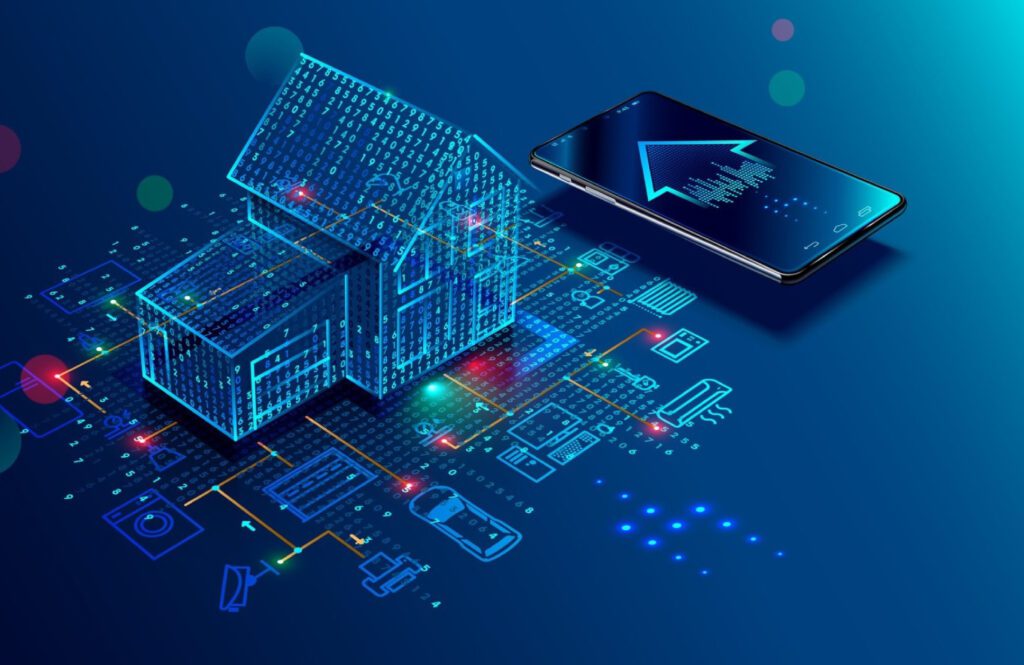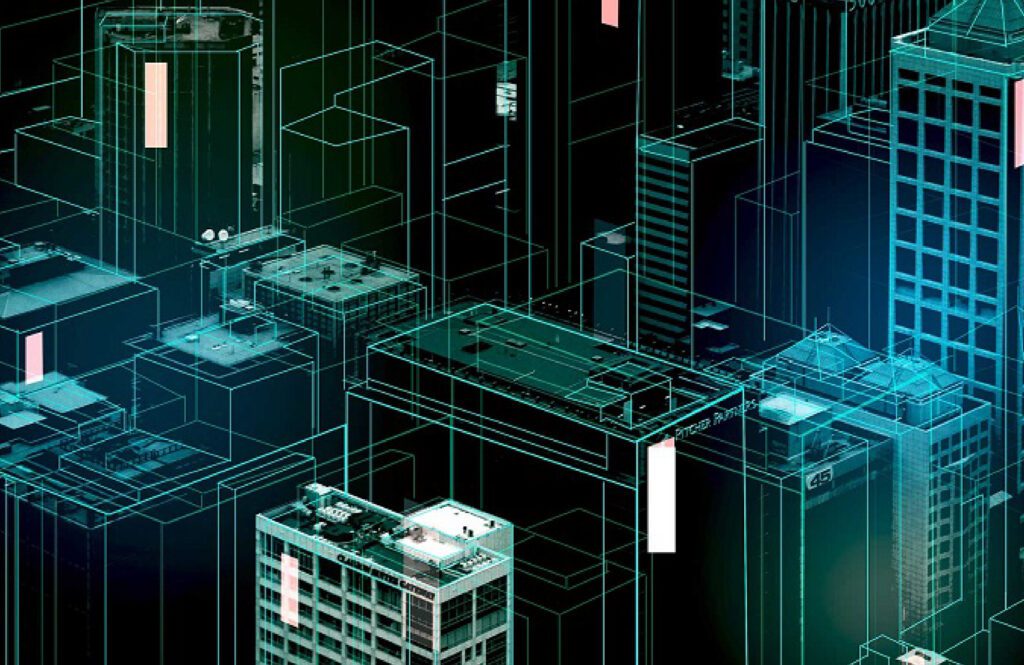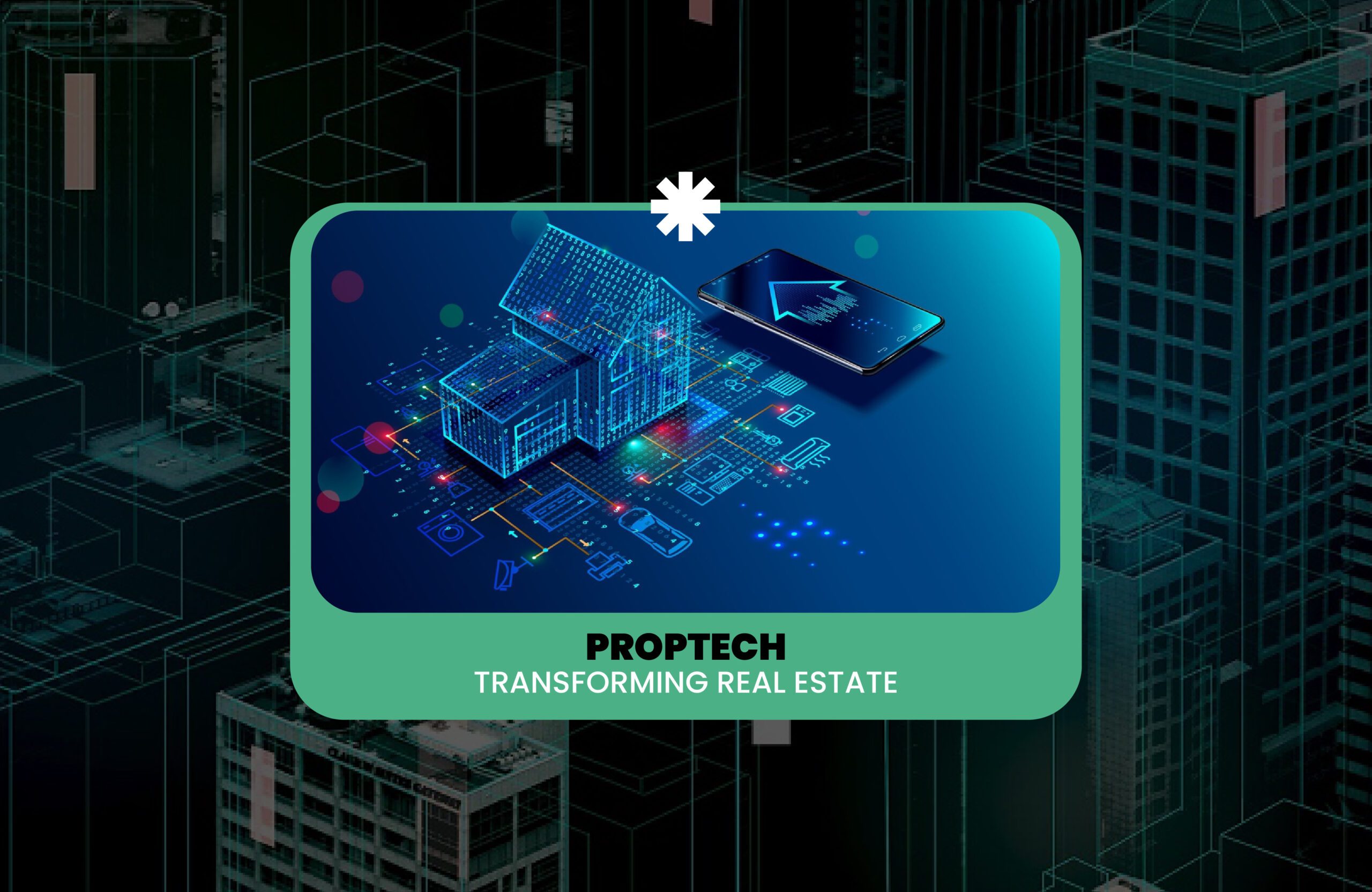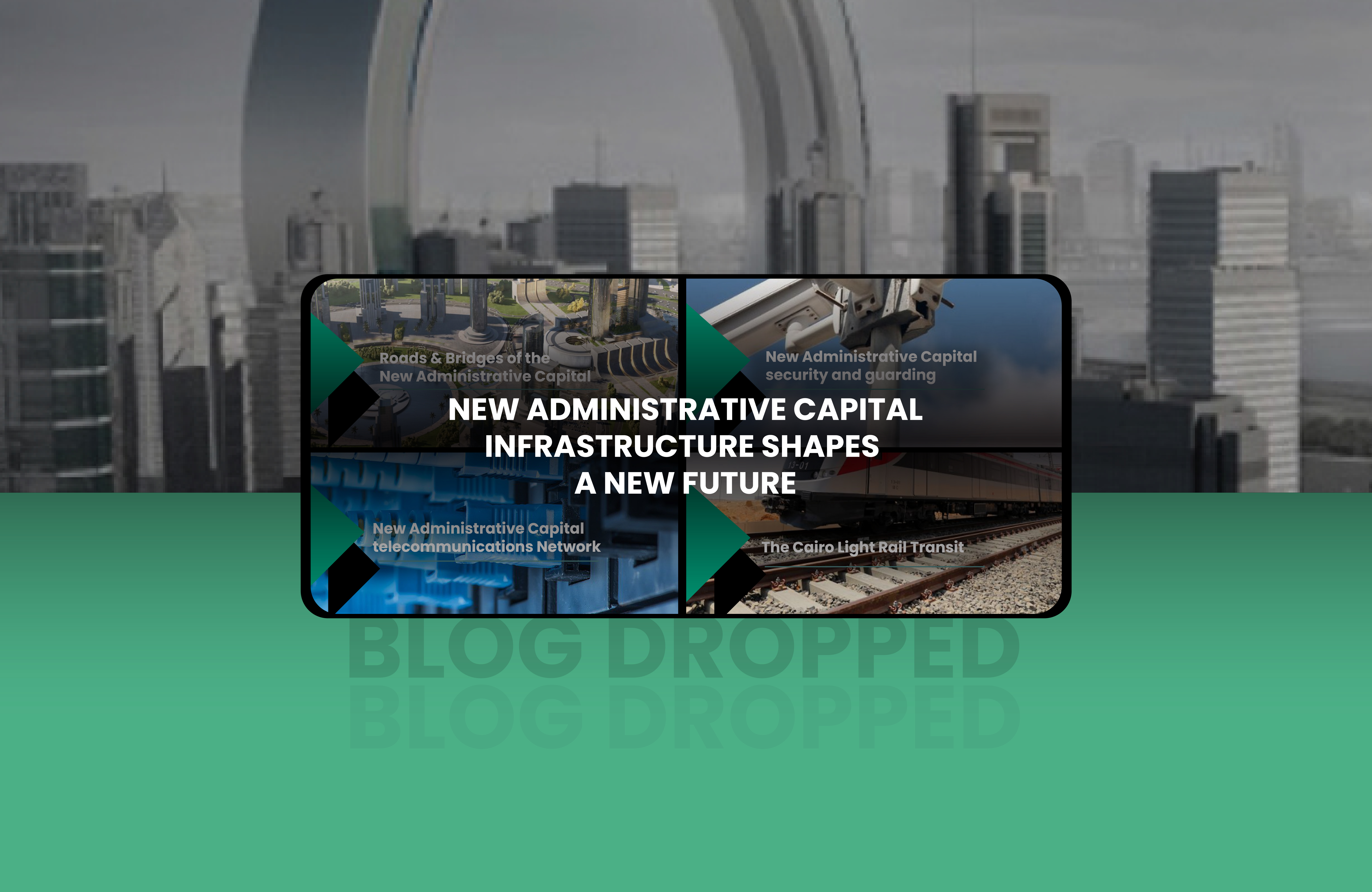The digital acceleration has transformed industries across the globe, with 67% increasing their reliance on digital products following the COVID-19 pandemic. This has revolutionized the way we work, communicate, shop, learn, and live. Every sector, including real estate, has adapted to new tools and embraced automation, shaping business structures and models.

What is Proptech
PropTech, short for property technology, merges real estate with advanced technologies like AI, VR, and blockchain to enhance property transactions and management. These technologies are also known as Real Estate Tech, Retech, Realtech, and Commercial Real Estate (CRE) Tech.
In many ways, the Proptech definition overlaps with several other sectors, namely:
Shared Economy Real Estate refers to platforms offering shared or joint property use.
Smart Real Estate (Smart Homes) uses internet-connected devices and appliances for remote monitoring and management of properties.
Fintech brings technology to financial services, meeting Real Estate Fintech for real estate financial processes.
Contech involves modern materials and sustainable building approaches.

Most important Proptech key features:
AI and machine learning are revolutionizing back-office processes. Companies have invested around $100 billion in AI-powered real estate tech development. This includes creating new solutions or adding AI-powered modules to existing software.
AI in real estate has advanced in various directions:
– AI brokerage tech
– AI for property management
– AI home automation
– AI for energy resource management
– AI for real estate development and construction
– AI real estate investment solutions
– Conversational tools
Proptech Big Data & digitalization of property data assets
Big Data involves collecting and analysing real-time and historical data about various real estate assets, to gain insights into pricing, home-value trends, and potential risks.
Virtual Reality for a better online search & home-buying experience
Virtual reality is leading the way in disrupting the real estate industry, with an increasing number of realtors relying on this technology. This group constitutes the majority of professionals in the field today. The use of VR in real estate varies, from providing virtual property tours to offering augmented reality solutions for digitally integrating furniture into existing interiors.
Internet of Things (IoT) for predictive maintenance
The Internet of Things (IoT) is a network of smart devices and sensors continuously sending and receiving information about residential and commercial properties. This allows property owners to monitor buildings’ temperature, security, and maintenance through mobile devices and computers. The data collected can be used to track the overall condition of the properties and predict potential failures.
ClimateTech and GreenTech for sustainability
As we embrace new methods of green construction focused on building sustainable, energy-efficient homes, modern appliances are also becoming smarter. SmartGrid refrigerators, washing machines, dishwashers, and microwave ovens are taking center stage in our homes. While sustainability is a hot topic at the largest Proptech conferences, many developments are still to come.
Blockchain and tokenization for affordable investments
The real estate industry has been increasingly focused on AI technology, while the attention on blockchain has decreased. However, blockchain has gained momentum and has shown the potential to revolutionize the real estate market. It aims to bring decentralized and transparent processes to property buying, selling, and investing by representing property as a digital token. Blockchain has reduced barriers to entry and enabled fractional ownership, making real estate investments more accessible to people from all socioeconomic backgrounds.
Key PropTech Innovations Reshaping the Market

The rise of property technology (Proptech) has led to significant innovation in the real estate market, impacting property owners, tenants, investors, brokers, letting agents, and other stakeholders. For brokers and real estate agents, Proptech solutions offer several benefits:
1. Easier data collection and AI-driven marketing, which aids in evaluating and managing various real estate processes such as development, investment, leasing, buying, and selling.
2. Automation of paperwork and cost reduction through document management tools, reporting systems, and CRMs, allowing brokers to save time and focus on essential tasks such as market research and closing deals.
3. Secure remote real estate transactions and self-help services, including chatbots and virtual assistants, for a faster and more convenient buying experience.
4. Enhanced customer experience through VR and AR immersive environments, enabling brokers to promote properties more effectively and expand their audience reach.
Additionally, Proptech has transformed the interaction between landlords, property managers, facility operators, and tenants by providing actionable insights and enabling quality communication. Proptech has improved market research and streamlined transactions for real investors and venture capitalists, reducing the need for intermediaries. Fintech specialists benefit from new technologies such as automated valuation models, while construction and property development professionals can leverage technology for automated budgeting, estimation, planning, scheduling, and project management.
check Estatebook platform to find your next real estate unit
Smart Homes and Buildings: The Future of Living
One of the most exciting prospects for PropTech in Egypt is the development of smart cities. These urban areas leverage technology to enhance the quality of life for residents, improve sustainability, and optimize resource management. Projects like the New Administrative Capital are leading the way, integrating smart infrastructure and advanced technologies to create futuristic living spaces.
Smart building solutions are also a critical component of PropTech. These solutions include smart thermostats, IoT devices, and building automation systems that enhance the efficiency and sustainability of buildings. By integrating these technologies, property managers can reduce energy costs and improve the comfort and security of occupants.
Smart buildings and IoT technologies are making properties more energy-efficient and secure. Smart thermostats, automated lighting, and advanced security systems reduce energy consumption and enhance residents’ living experience. These technologies also provide property managers with tools to monitor and control building systems remotely, ensuring optimal performance and safety.

Smart Homes Taking Developers To a New Era
Sustainability and PropTech: Green Solutions for Modern Buildings
A smart city is any urban center that adopts a coordinated approach to using data and technology to improve the lives of the citizens and businesses that inhabit it. The Internet of Things (IoT) is the core technology upon which smart cities are built. The sensors in IoT-enabled devices constantly collect data and feed it into analytics platforms, which provide targeted insights that city officials can use to make improvements.
Challenges and Future of PropTech in Real Estate
Despite the promising advancements, the integration of PropTech in Egypt faces several challenges, including infrastructural limitations, resistance to change among traditional real estate players, and the need for digital literacy among users.
Overcoming Infrastructural Limitations:
Egypt’s real estate sector must contend with infrastructural challenges such as inconsistent internet connectivity and outdated building infrastructure. Addressing these issues is crucial for the effective implementation of real estate technology. Investment in high-speed internet and modern building materials will be pivotal in overcoming these barriers.
Encouraging Digital Literacy:
For PropTech to realize its full potential, there needs to be a concerted effort to enhance digital literacy among all stakeholders. This involves training property managers, real estate agents, and tenants to use new technologies effectively. Educational initiatives and workshops can play a significant role in bridging the digital divide.
Conclusion:
The emergence of PropTech in Egypt is significantly changing the real estate industry. Through the use of real estate technology, the sector is moving towards increased efficiency, transparency, and customer satisfaction. The incorporation of property management software, virtual reality, blockchain, and other innovations is reshaping the processes of purchasing, selling, and managing properties.
As Egypt continues to adopt digital transformation, the real estate technology sector will have a key role in influencing the future of property management. With appropriate policies, infrastructure investments, and educational programs, PropTech has the potential to enhance Egypt’s real estate market, leading to sustainable growth and improved living standards for everyone.



